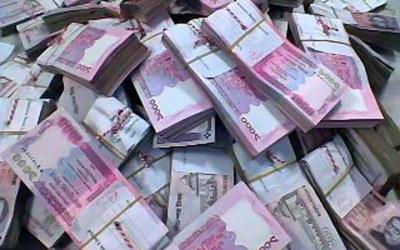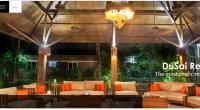 In its latest move to bring down interest rates to single-digit, private banks have put a ceiling on borrowing and lending rates, which they claim will solve the liquidity crisis.
In its latest move to bring down interest rates to single-digit, private banks have put a ceiling on borrowing and lending rates, which they claim will solve the liquidity crisis.
Bangladesh Associations of Bankers (BAB) has directed all commercial banks to set the borrowing and the lending rates at 6 percent and 9 percent respectively by Jul 1.
Analyst, however, said the move will intensify the crisis.
Depositors are likely to withdraw their money and invest in other avenues, like savings certificate.
“Decision to reduce borrowing rate will make customer more reluctant to deposit money,” former caretaker government adviser AB Mirza Azizul Islam said.
“No fresh customers will keep money in the banks,” said he told Bangla Tribune adding, “Many will pull out their deposit and invest in other sectors and savings certificates.”
A former chief of the stock market regulator, Islam said, “Banks could only bring down the lending rate to single digit to maintain the spread in line with the central banks’ instructions.”
Private banks have already witnessed a decline in the growth of deposits, according to Islam.
“Reduction of browning rate result more liquidity crisis in banks and eventually, can ruin the government’s plan to decrease the lending rate,” warned the economist.
He also advised for monitoring on whether the loan money is used in productive sector.
The banks’ decision on borrowing, however, will not affect the old depositors, claimed BAB President Nazrul Islam Mazumder.
Mazumder, who heads the board of EXIM Bank, said that bank owners along with the government are working to bring down the rates to single digit.
Economist Selim Raihan disagrees. “Reduction of borrowing rate can incur loss to both old and new depositors.”
“As banking sector lacks good governance, these decisions may deepen the banking sector crisis,” said the executive director of private think-tank South Asian Network on Economic Modeling (SANEM).
Raihan said, “Forcing anything conflicts with the idea of market economy. Borrowing rates has been forcibly brought down to minimise lending rate that will affect general people.”
The recent decisions on banking sector will fail to face the ongoing crisis, according to this economist.
Data from Bangladesh Bank shows banks disbursed Tk 10 billion between December 2017 and March 2018 with stagnant situation in their deposit.
In December 2107, banks’ deposit stood at 9.261 trillion, which slightly decreased to Tk 9.252 trillion in March this year.
With no rise of deposit and subsequently disbursement of loan has created the liquidity crisis in the banks, according to banks officials.
In their negotiation earlier this year to slash the lending rate, private banks managed the Bangladesh Bank to reduce the cash reserve ratio (CRR) by one percentage point to 5 percent, extend the deadline for adjusting ADR that measures loans as the percentage of deposits and lower the repo rate from 6.75 percent to 6 percent.
The repo interest rate determines the rate of interest a commercial bank has to pay on a loan from the Bangladesh Bank.
It had also made the government to keep 50 percent of its funds with them in an effort to address the liquidity crisis.
With enjoying these previous privileges, private banks also got three more incentives when Finance Minister ANM Muhith proposed 2.5 percent reduction in banks’ corporate tax in the national budget for 2018-19 fiscal.
In face of pressure from the BAB, the government has also moved to reduce the interest rate of saving certificates and disburse the ‘idle-money’ of the state-owned banks for the private banks.
In his budget proposal, Muhith kept the corporate tax rate unchanged, except for banks and financial institutions, for which he proposed a reduction of 2.5 percent from the existing 40 percent.
With this proposed rate, the highest corporate tax rate will be mostly 40 percent, and next highest rate will be 37.5 percent, except for tobacco manufacturers and non-listed mobile phone operators, which will be taxed at 45 percent.
Muhith’s proposal will make way for the banks’ owners, including that of the nine new ones that started in 2013 to pocket Tk 8 billion from their revenues, according to data from National Board of Revenue.
 Business
Business
31464 hour(s) 13 minute(s) ago ;
Evening 07:07 ; Sunday ; May 19, 2024
Deposit rate cut to deepen banks’ liquidity crisis: Analysts
Send
Golam Mowla
Published : 06:00, Jun 25, 2018 | Updated : 06:00, Jun 25, 2018
Published : 06:00, Jun 25, 2018 | Updated : 06:00, Jun 25, 2018
0 ...0 ...
/hb/
Topics: Top Stories
- KOICA donates medical supplies to BSMMU
- 5 more flights to take back British nationals to London
- Covid19: Rajarbagh, Mohammadpur worst affected
- Momen joins UN solidarity song over COVID-19 combat
- Covid-19: OIC to hold special meeting
- WFP begins food distribution in Cox’s Bazar
- WFP begins food distribution in Cox’s Bazar
- 290 return home to Australia
- Third charter flight for US citizens to return home
- Dhaka proposes to postpone D8 Summit
Unauthorized use of news, image, information, etc published by Bangla Tribune is punishable by copyright law. Appropriate legal steps will be taken by the management against any person or body that infringes those laws.
Bangla Tribune is one of the most revered online newspapers in Bangladesh, due to its reputation of neutral coverage and incisive analysis.
F R Tower, 8/C Panthapath, Shukrabad, Dhaka-1207 | Phone: 58151324; 58151326, Fax: 58151329 | Mob: 01730794527, 01730794528






